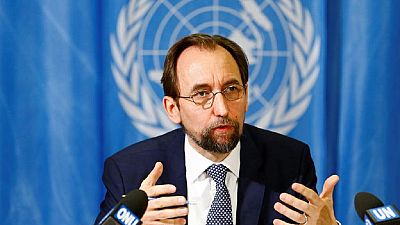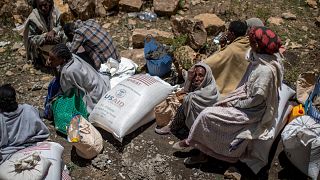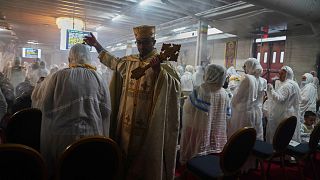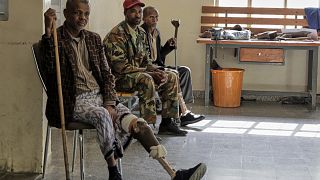Ethiopia
The U.N. human rights chief said he was allowed to visit a region in Ethiopia that has been roiled by protests and unrest for the past three years, after the previous administration turned down his request last year.
The visit by U.N. High Commissioner for Human Rights Zeid Ra’ad al-Hussein came three weeks after the Horn of Africa nation swore in new prime minister Abiy Ahmed, who has pledged reforms in the wake of state repression and violence.
In the Oromiya region that Zeid visited, hundreds of people have been killed in violence since 2015, triggered by demonstrations over land rights that broadened into calls for political freedoms.
In many instances, security forces opened fire on protesters, according to the United Nations.
The choice of 41-year-old Abiy by the ruling Ethiopian People’s Revolutionary Democratic Front (EPRDF) is seen as an effort by the coalition, in power since 1991, to ease ethnic tensions and appeal to legions of disaffected youth, particularly in regions like Oromiya, where he is from.
Zeid said he met Abiy as well as traditional elders in Oromiya. He also met recently released opposition politicians and civil society activists during his visit this week.
“When I compare how only a few years ago, it would not have been conceivable that the human rights high commissioner undertakes a visit to Ethiopia,” he said in an interview.
“I (have) been given access in a way that I did not think was possible.” The U.N. human rights office also signed an agreement to increase cooperation with the government, he said.
During his last visit to Ethiopia a year ago, Zeid urged the government to expand civic space and rights, and requested permission to investigate violence in Oromiya. The government declined his request.
Since replacing Hailemariam Desalegn – who resigned in February amid unrest threatening the ruling coalition’s tight grip – Abiy has vowed “a new political beginning” including more democratic rights.
The country of 100 million people shares borders with volatile states including Somalia and Sudan. The government has long been accused by rights groups of using security concerns as an excuse to stifle dissent and the media.
Ethiopia’s 547-seat parliament does not have a single opposition member. Opposition parties accuse the EPRDF of rigging the 2015 election.
Abiy has spent his first weeks in office travelling the country, including to Oromiya and Amhara, another region where protests have taken place. Zeid said his office has requested access to Amhara.
Abiy has not lifted a six-month state of emergency announced by the ruling coalition the day after Hailemariam resigned in February. Analysts say this indicates the challenge he faces in promising reforms publicly while privately persuading the EPRDF to loosen its hold.
Zeid declined to comment on whether the state of emergency should be lifted. But he said his recommendation to the previous government – “that it needed to open up” – “seems to be happening”. “I think people believe there is cause for optimism,” he said.
REUTERS












Go to video
Kenya set to surpass Ethiopia as East Africa’s largest economy in 2025 – IMF
Go to video
US plans to reduce diplomatic presence could be part of wider change in US-Africa ties
Go to video
Ethiopians mark Easter with calls for peace and love amid ongoing conflict
Go to video
Iran seeks Russia's support for its nuclear talks with US
Go to video
French diplomats given 48-hour notice to leave Algeria
Go to video
Lt. Gen. Tadesse Werede named the new interim president of the Tigray region